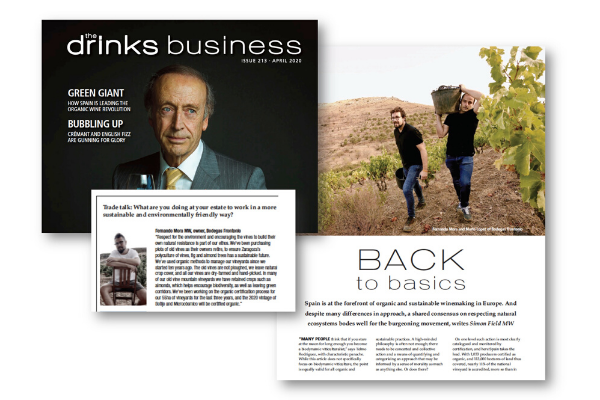Spain – Europe’s nº 1 source of organic wine
The Drinks Business recently wrote a feature on sustainability and organic winemaking, marking Spain out as one of the frontrunners in the growing movement, with more than 11% of the national vineyard – 113,000 hectares – certified as organic, more than any other European nation.
The region with the most hectares of organic vineyard is La Mancha, with 55,697 hectares in 2018, and it is the source of the latest organic wine to be added to our range – Melea. From the Cuenca area of La Mancha, the hot, dry climate and 660m altitude make it the ideal source of high quality organic grapes.
Sustainability is very important to us as a company and many other wineries that we work with have either achieved or are working on the long process of attaining organic accreditation. Fernando Mora MW, from our partner winery Bodegas Frontonio in Aragón, is reaching the final stage of the process, as he explains in this quote in the Drinks Business article:
“Respect for the local environment and encouraging the vines to build their own natural resistance is part of our ethos. We’ve been purchasing plots of old vines in the area as their owners retire, to ensure that the area’s traditional polyculture of vines, fig and almond trees has a sustainable future.
We’ve used organic methods to manage our vineyards since we started ten years ago: the old vines are not ploughed, we leave natural crop cover, and all our vines are dry-farmed and hand-harvested. In many of our old vine mountain vineyards we have retained other crops such as almonds, which helps encourage biodiversity, as well as leaving green corridors.
We’ve been working on the organic certification process for all of our 55ha of vineyards for the last three years and the 2020 vintage of Botijo and Microcósmico will be certified organic.”
Author Simon Field MW signs off the article by saying, “the power of an almost tangible spirit of good will is driving Spain forward” and speaks of “its burgeoning role as the European leader in this, the most relevant of all of today’s vinous debates.”






